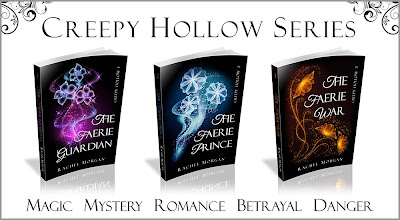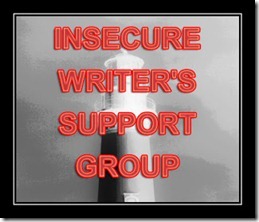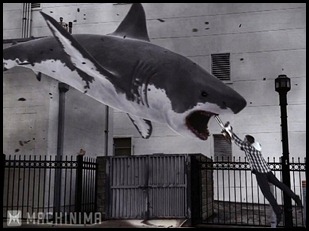Anyway, without further ado:
SANGUINE MUSINGS
by DAN M. KLINEFELTER - WRITER AND STUFF
Wednesday, August 7, 2013
THE FAERIE WAR Cover Reveal
Anyway, without further ado:
IWSG: The Fall Will Kill You
There’s a famous scene in Butch Cassidy and the Sundance Kid where the title characters are trapped on a mountain ridge and a posse of hired guns is chasing them down. Sundance is prepared to fight them off, a fight they’ll likely lose, but Butch sees a way out: jump into the river at the bottom of the ravine. Sundance refuses. After a hilarious back and forth, Sundance admits that he can’t swim. Despite the desperation of their situation, Butch cracks up, not because Sundance can’t swim, but because he’s worried about the wrong thing. “The fall will probably kill you,” he says.
I’m posting this as part of the Insecure Writer’s Support Group, hopefully they welcome new members. Anyway, it’s been three months, give or take, since I released my novel, The Wind Maiden. I had no marketing plan, kind of on purpose, and kind of not, because I wouldn’t know what I was doing anyway. Well, anyone who’s published a book – or put their artwork on display, or released a CD, or in any way put their creativity on display for the would to see – understands the sheer terror involved giving it to the world. You also know it’s a thrilling kind of terror, like jumping out of an airplane.* Also like skydiving, the terror fades once you commit. Staring out the side of an airplane at 13,000 feet can get the hardest of hearts jittering, but once you’re tumbling through the air like a load of laundry, there’s not much point in being afraid.
My personal anxiety was simple: what if everyone hates it? I know it’s good, or good enough to be published, at least. I also know it’s not perfect, and good or not, everyone has different tastes. I braced my for the bad reviews. Everyone gets them, even the great ones like Neil Gaimen and Michael Chabon, and I’m not near their territory - not yet, anyway. So bad reviews are the price of doing business, and I was prepared for them. But there was one problem:
I was worried about the wrong thing.
I haven’t gotten any bad reviews yet because I basically haven’t gotten any reviews at all. I’ve sold some books, even to people I don’t know, but so far I have no idea if any of those people have even read it, or if they tried to and gave up, or heck, even if they liked it. I should have expected it: I read a lot, but before I saw things from the author’s perspective, even I never reviewed things, so I’m definitely not taking it personally.
On the other, I really need feedback. I was worried about bad reviews, now I’d kill for one,** This is my first book. I’ve gotten positive comments (and some critiques) form people I know personally, but the readers that don’t know me from Adam, they’ll tell me exactly how they feel, good or bad. And that’s what I want to know.
I’ve just got to figure out how to find them.
*With a parachute. I rather not experience the thrill of jumping without one.
**Metaphorically.
Monday, August 5, 2013
Writing Out the Storm
I remember reading an article years ago by one of the creators/producers of Star Trek: Deep Space Nine. They had wanted to expand on the renewed interest created by The Next Generation with a second spin-off, this one not in a starship exploring the galaxy, but rather “boldly staying put” in a space station, where people of different backgrounds (and species) struggled to get along with each other. It was the perfect setting for conflict: an isolated outpost perpetually on the brink of war populated with characters with private agendas and serious trust issues. The only prerequisite: it had to stay true to Gene Roddenberry’s vision of the future.
The problem? In Roddenberry’s future, humanity has finally overcome it’s darker side. Intellectual disagreements still exist, but otherwise everyone gets along. There is no hate, duplicity, greed, or power struggles.
In other words: no conflict.
That’s great for humanity, but full of suck for anyone trying to tell any kind of story. Stories need conflict. Conflict is the heart of drama (and comedy, for that matter). The producers of DS9 circumvented Roddenberry’s rule by simply populating the show with aliens. Humans may be evolved, but the Ferengi, Bajorans, and Cardassians are still flawed, dark, and hopelessly interesting.
So where do we get our conflict, and what do we do with it once we have it? It helps if you keep it as real as possible, even when dealing with fantasy and science fiction. Sure, we all agree Sharknados are, as the kids say, made out of awesome, but how many times is the average person going to encounter Great Whites falling out of the sky?* Well, that’s the easy part: pick up a paper, look out your window, hell, just talk to anyone about anything. In this flawed, un-evolved, decidedly non-Roddenberry world of ours, conflict is everywhere. Whatever you want, you got it, from minor blow-ups to calculating deceptions to life-or-death struggles. Take your pick. The trick is what to do with that conflict.
“Hey, I’m going to be late, there’s a Sharknado…Yeah, again…”
This May, I published my first novel. In it, the main character, Thea, is about to win a 2500 meter race at a track meet. Just before she can reach the finish line, the city is hit by a bombing raid. Bombs go off, and lives are lost. It was a scene I wrote literally eight years earlier, and one I hadn’t given much thought to afterward because it worked.
About a month earlier, however, something very similar happened in Boston, a race ending in violent tragedy. Suddenly the problems of a figment of my imagination didn’t seem worth much. I considered dropping the scene, though it was a pivotal part of the story. I considered postponing what I had put off far too long already. After talking it over with people close to me, I decided go ahead with it. I tweaked the scene and its aftermath to give it a little more weight, but otherwise I kept it as is. So far, I haven’t had any negative reactions to it.
That’s the double edge sword of conflict: we want it to be as real as possible, but for those who have gone through it, it might be too real. Our stories need conflict, or to put it another way: our job as writers is to kick the shit out of our characters (literally or figuratively). We put as much crap in our characters’ way as we can; the value of the story is seeing them climb their way out.
It would be nice if we lived in a future where everyone was nice to each other and bad things just didn’t happen. Until that happens, though, we need stories dripping with conflict to encourage us, to remind us that we can climb out of the crap that life gives us. And personally, I’ll take our messy world of conflict over a sterile utopia. It may be flawed, but that’s what makes it beautiful.
Although a holodeck would be awesome…
* Two or three at best
Wednesday, December 7, 2011
Don Draper Would Punch You In The Face If He Heard You Talk Like That
I have a book coming out. I’m trying not to be obnoxious about it, but this blog is about my life as a writer. And right now that life is consumed by my novel. I’m self-publishing, and those of you who’ve gone that route know what it’s like to realize just how much you have to do to get a book ready for primetime, so to speak, and then wake up the next morning and realize there’s about a hundred more things you have to do that you hadn’t even though of. So forgive me if I keep bringing it up.
 This week’s anxiety-sponsored ramblings revolve around everyone’s favorite part of the writing process: marketing.* Is there anyone out there who got into writing with the lifelong dream of platform building and putting together a market strategy? If there are, God bless you, but for me, it’s been the most stressful part of the process. I’ve been mulling over the options: a grassroots blog-based campaign, a subtle “coming-soon” style buzz-builder, maybe even hiring a professional. Right now, I’m considering possibly the most revolutionary of all marketing strategies:
This week’s anxiety-sponsored ramblings revolve around everyone’s favorite part of the writing process: marketing.* Is there anyone out there who got into writing with the lifelong dream of platform building and putting together a market strategy? If there are, God bless you, but for me, it’s been the most stressful part of the process. I’ve been mulling over the options: a grassroots blog-based campaign, a subtle “coming-soon” style buzz-builder, maybe even hiring a professional. Right now, I’m considering possibly the most revolutionary of all marketing strategies:
Not marketing at all.
Why do we do this? Writing, I mean. What’s the drive, the endgame? Is it the money? There’s lots of easier and quicker ways to make money. Is it to be read? Maybe. But why? Is it because a book isn’t really complete until someone reads it, or is it so people can tell you how great you are? I’ll be honest: I’d love to hear people tell me how great I am while cashing checks with more zeros than the Republican primary field. But is that what drives me? No.
Somewhere in the universe, there’s at least one person who’s going to buy my book (or borrow it, or pirate it, whatever) and who’s going to fall madly in love with it. I’m not saying it’s great; she may be the only person in the world who even likes it, who even buys a copy, but for whatever reason, she’ll love it. That’s who I’m writing for.**
I don’t need a glossy ad campaign or a marketing strategy design to penetrate every last corner of the web. If this elusive reader exists, and I’m sure she*** does, then the book’ll find her, or she’ll find it. She might even feel she “discovered” it.
And that’s fine by me.
*seriously, where’s that sarcasm font?
**this sentence is so blatantly incorrect, I know, but the alternative is, “That’s for whom I’m writing.” And who wants to read that shit?
*** or ‘he’. Just trying to keep it simple.
Monday, December 5, 2011
I Want a Blog, Just Like the Blog…
So I changed things around. Again. I’m trying to capture a professional look for my blog while still keeping it personal and unique. I don’t know if I’ve achieved that, but I’m satisfied with the look for now. I look at other people’s blog’s and I think there’s some ”make my blog awesome” button that I’m missing. Maybe it’s just because it’s mine, and I don’t have an objective eye. Maybe my contempt only comes from my familiarity as Mr. Clemens might have suggested. At any rate, no matter what I do with my blog, I’ll never be completely satisfied. I’ll never be able to view it as an objective observer and say, “Man, dude knows what he’s doing.” In short, I’ll always feel it’s not quite good enough.
Sanguine Musings 1.0
Have you figured out yet that this really isn’t about my blog at all?
All the above is true: I’ll really do feel design-wise my blog doesn’t quite cut it. But I don’t care about that. Yeah, I do my best to make it the best, but what matters is the content, and I’m generally satisfied with that. What the real issue is, is that the top paragraph sums up exactly the way I feel about my novel.
I read pretty much any type of book: classics, nonfiction, genre novels, self-pubs, even books off the supermarket checkout racks. Some are really good, and some are…well, not. But they all have something in common, whether paper or plastic, whether published by Smashwords or Simon and Schuster: they’re all professional.
And then there’s mine.
Don’t me wrong. I’m not saying book is crap. I’m going line by line with a red marker, and then I’m passing it on to a professional, so it’ll be as clean as it can possibly be. All the plot holes are gone. The characters are alive, at least to me, and the action seems to flow pretty well. In short, it’s a novel. And a professional one, at that.
I just find it hard to view it that way.
Maybe it’s just me. I haven’t had a lot of feedback, probably not as much as I should have, anyway, so I’m kind of flying blind a little. Maybe it doesn’t even matter. My book is either good or it isn’t. More likely, it’s both. Some people will like it and some won’t, that’s just the way it is. In short, I’m satisfied with it. I always though that if I could get amnesia and read one time without any previous knowledge of it, that would help a lot.*
Well, in a few months I’ll know exactly what people think about it.
In the meantime, I’ll keep looking for the “make my book awesome” button.
*I don’t really want amnesia.
Saturday, December 3, 2011
Watch Out, He’s Got a Binder!
I’m kicking it old school* these days. After months of fits and starts trying to work through the final edit of my MS on my laptop, I decided to print it out and tackle it the old fashioned way. I’ve got my red pen and my rainbow of highlighters, and I’ve been tearing through paragraphs like a machete-wielding psychopath at an abandoned summer camp.
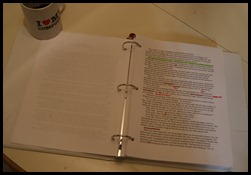 This is the final stretch for me: I’ve decided to self-publish, and I’ve targeted early 2012 for release. Is my book good enough? I don’t know, but it’s been complete for nearly two years now. Since then I’ve cut out nearly a quarter of the text, changed names, races, concepts, eliminated characters, and pretty done everything I can to squeeze as much life out of every paragraph and every sentence as possible.
This is the final stretch for me: I’ve decided to self-publish, and I’ve targeted early 2012 for release. Is my book good enough? I don’t know, but it’s been complete for nearly two years now. Since then I’ve cut out nearly a quarter of the text, changed names, races, concepts, eliminated characters, and pretty done everything I can to squeeze as much life out of every paragraph and every sentence as possible.
Now it’s ready for the world, no matter how much I might want to lock it in an airtight case and bury it under seven miles of concrete. It’s a book; it needs to be read.
Is it good? Again, I don’t know. I like it, but I’m biased. It’s hard impossible to read it at this point with anything close to objectivity, and despite what people say, it’s pretty damn hard to find objective readers, too. It’s not so much that putting out a bad book worries me, it’s that I haven’t done everything I can tell the story of Thea, Talus and everyone else in the most effective way possible.
So that’s why I dusted of the old binder** as well as any marketing ability I might have tucked away in the dark recesses of my brain. I’m going to publish. On my own, no less. Very soon, I’ll even have a date set. No going back.
My book might suck, or it might be good but completely ignored. But If I don’t risk those things, it’ll sit in a file collecting virtual dust until it disappears, never having seen the world. I don’t want that to happen.
It kind of feels like jumping out of a plane. I know because I’ve done that, too.
I think this is scarier.
*kids still say that, don’t they?
**three rings to rule them all.
Monday, October 17, 2011
NaNo Seconds
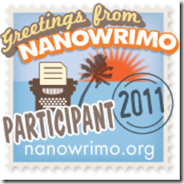 I took part in NaNo last year. For those of you unfamiliar, that’s National Novel Writing Month. It’s an event that encourages people to write an entire novel in a month. November, specifically. As I said, I participated last year. Didn’t finish, sadly. I had been looking forward to it this year, the plan being to get every bit of preliminary out of the way around summer and let the story gestate through early fall, so when November came around, my novel would hit the ground running.
I took part in NaNo last year. For those of you unfamiliar, that’s National Novel Writing Month. It’s an event that encourages people to write an entire novel in a month. November, specifically. As I said, I participated last year. Didn’t finish, sadly. I had been looking forward to it this year, the plan being to get every bit of preliminary out of the way around summer and let the story gestate through early fall, so when November came around, my novel would hit the ground running.
Not only did none of that happen, but I’ve been wondering if a writing career is still the path I want to follow. Despite that, I’ve decided I’m still going to take part this year. I love the process, especially the early stages of creation. Of creating characters so bold and vivid that eventually they tell you what to do.
I think it would be good for me: a specific goal, and a deadline so tight I have to focus most of my attention on it. Also, I’ll know going in that failure is an option, at least by NaNo’s measure of success. The process is what’s important; victory is not a word count, but a reawakening of my passion for putting the world that exists only inside my head into those strange, jagged patterns called words.
So I’m jumping in, and if the water’s too cold, I’ll jump back out. Most of all, though, there’s no pressure. What I get done, I get done. And as we all know, it’s never about quantity; it’s about quality.
So wish me luck, and...um…got any ideas?
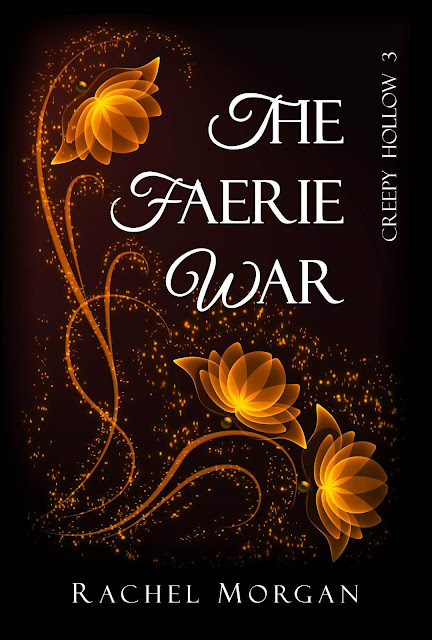.jpg)
